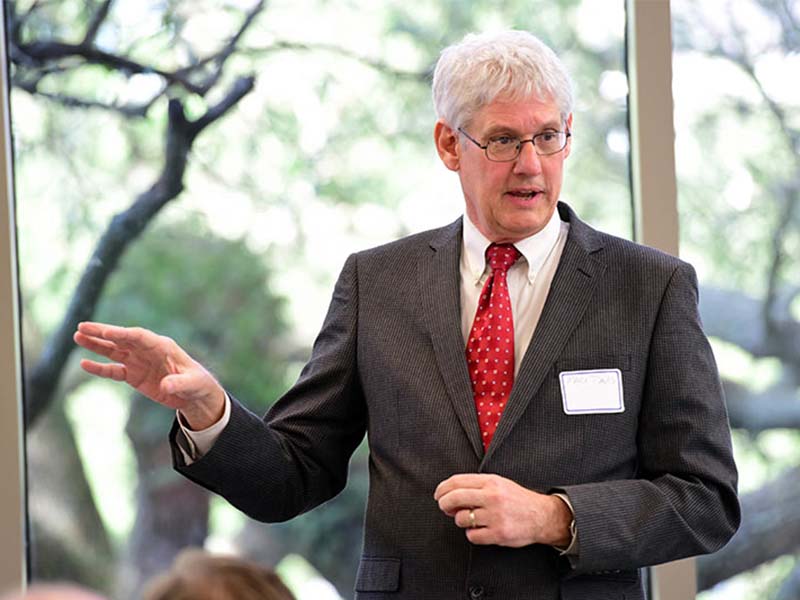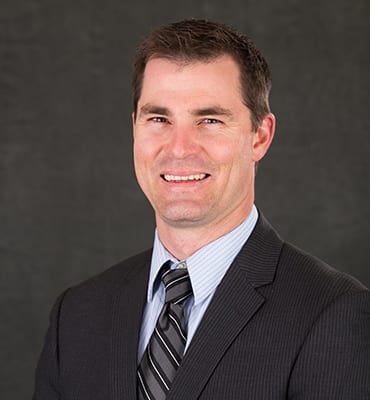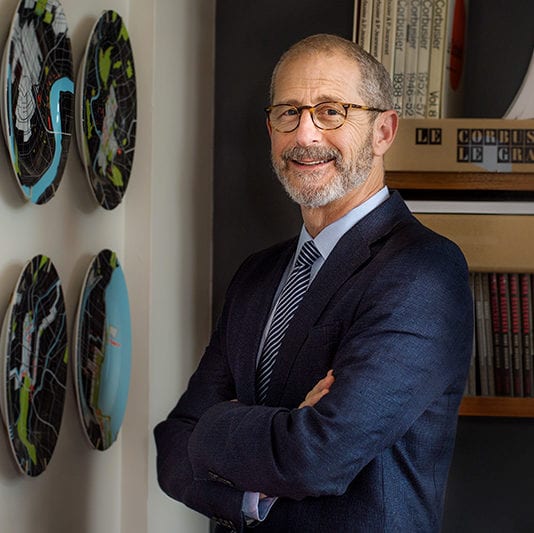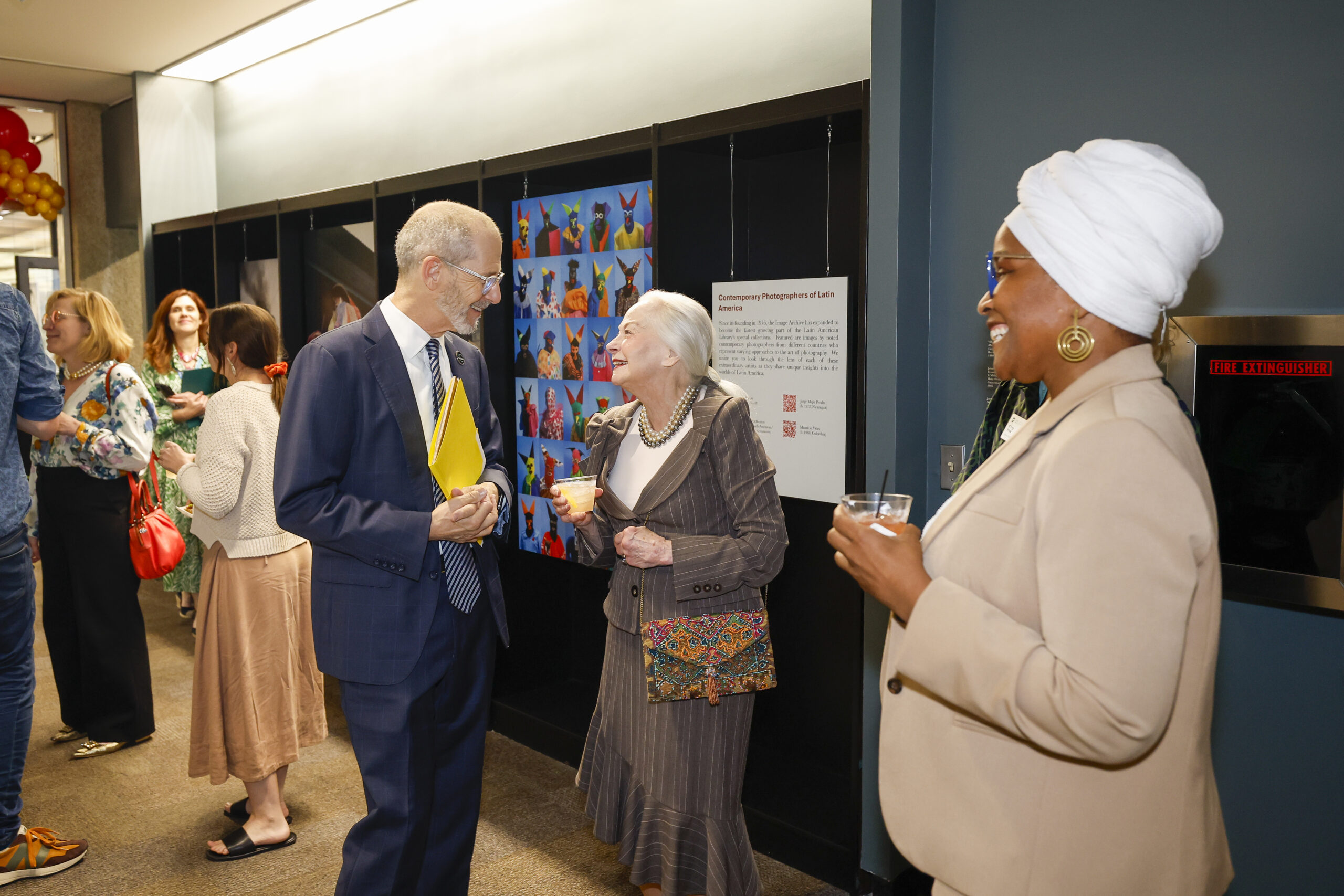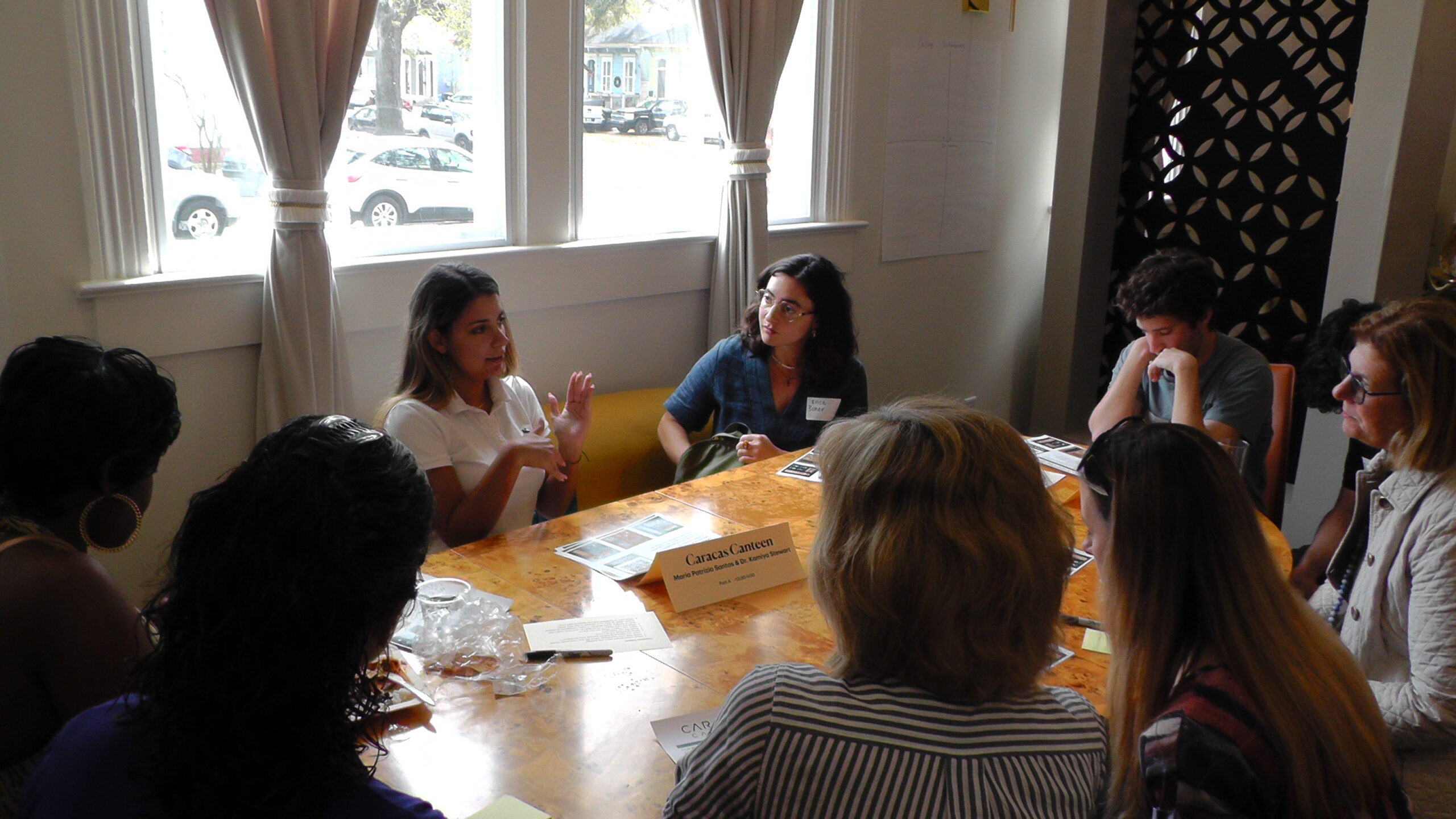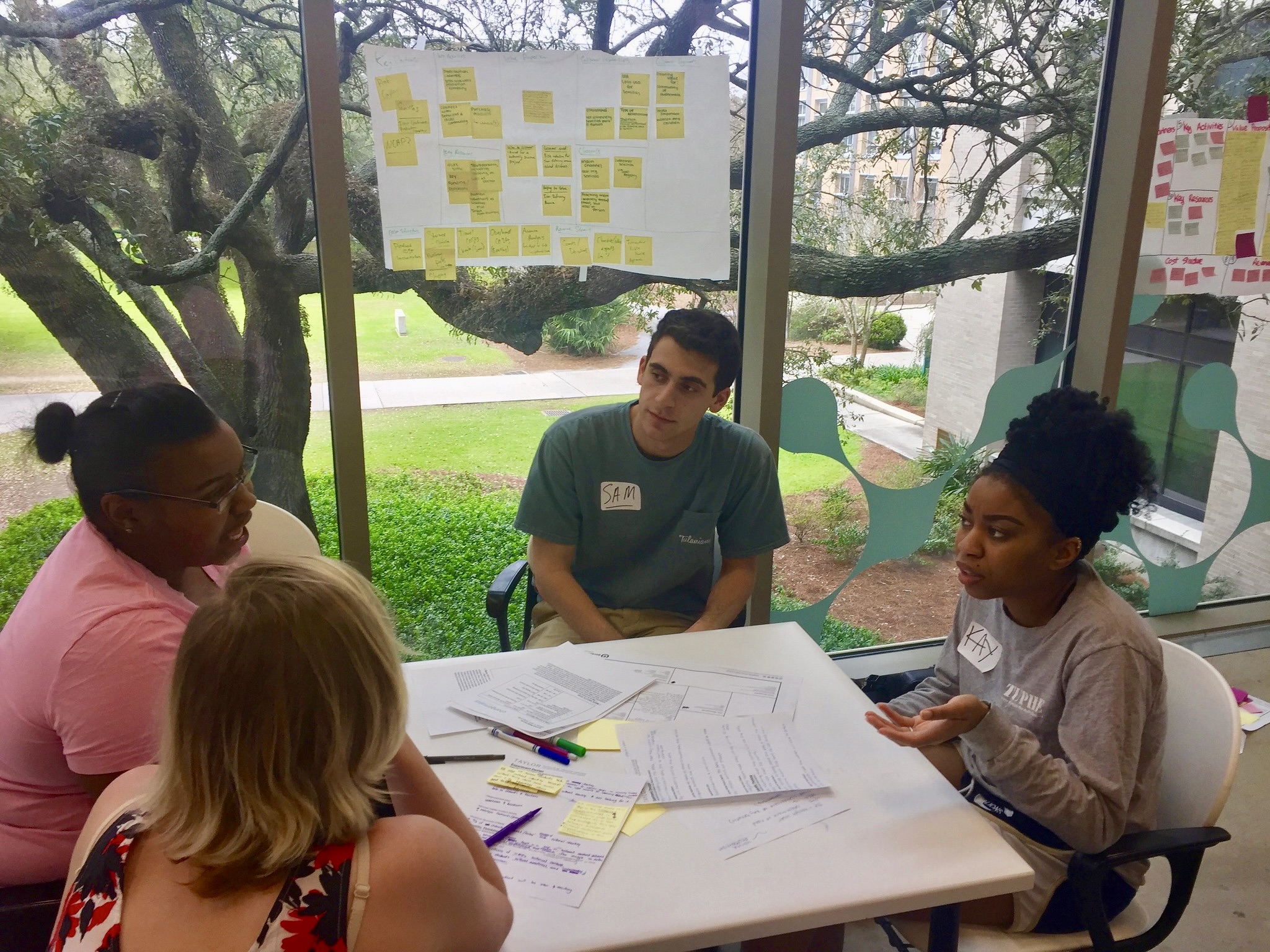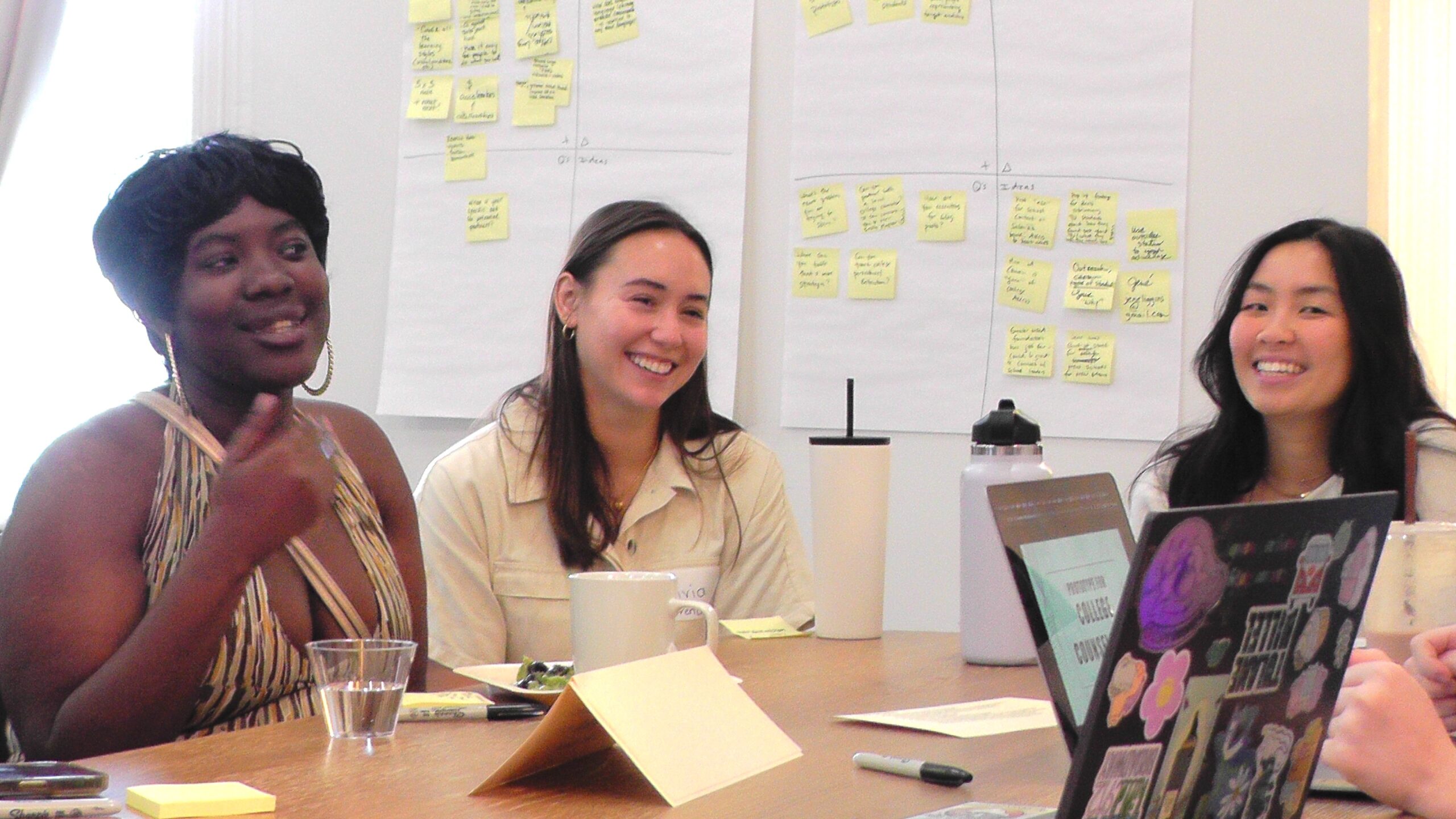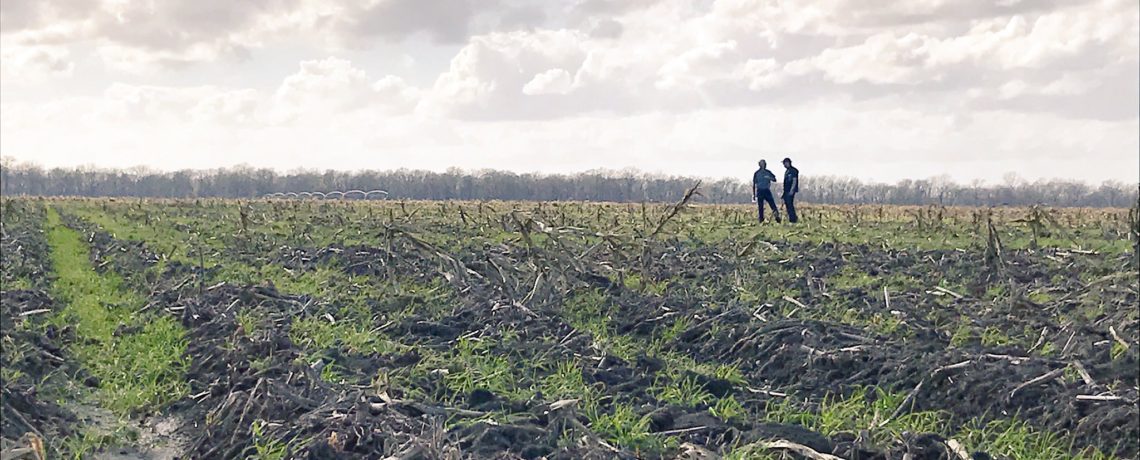
What is a grand challenge?
Grand Challenges are socially innovative approaches to addressing problems that natural market forces have failed to solve. In 1927 Charles Lindbergh claimed the Ortegi Prize and $25,000 when he became the first to fly from New York to Paris. Recent examples and successes include the human genome project and the Ansari Prize resulting in the introduction of commercial space travel.
As defined by the White House, “Grand Challenges are ambitious, yet achievable goals to solve society’s biggest issues through innovation and breakthroughs in science, technology and implementation strategies.”
About The Tulane University Nitrogen Reduction Challenge
The Tulane Nitrogen Reduction Challenge sought innovative in-field solutions to reduce crop fertilizers and runoff, with the goal of combating hypoxia and global “Dead Zones”.
The $1 million prize was awarded to the Team that best achieved the Challenge goals, Adapt-N, on December 14, 2017.
The Selection Process
The Finalist Teams were assessed based upon:
- Enhancing crop yield
- Reducing nitrogen
- Cost of solution
- Real world application
Each Finalist Team’s innovation was reviewed and scored by a diverse advisory committee using quantitative measures and each Team’s final summary report. While there is only one official winner, all Finalist Teams were competitive and have the potential to go to market and be a feasible solution. Adapt-N was chosen to be the most effective in all four measures. The most important component of their solution is getting farmers to apply the right N fertilizer rate for a particular production environment.
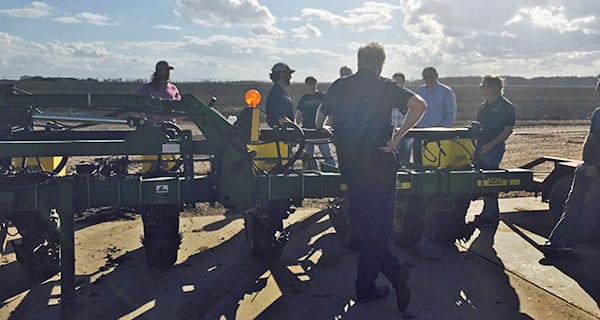
The Farm Site
The Challenge was fortunate enough to partner with the Hardwick Family and Hardwick Planting Company in Tensas Parish, where the Top Finalist Teams will be implementing their innovations in a real-world setting during Phase 2 of the Tulane Nitrogen Reduction Challenge.
Somerset Plantation is approximately 20,000 acres consisting of 14,000 acres of farmland and 6,000 acres of hardwood timberland located in Tensas Parish in northeast Louisiana along the Mississippi River near Newellton, LA. Hardwick Planting Company partners Jay, Mary, Mead and Marshall Hardwick produce 9,000 acres of cotton, corn, soybeans, wheat and sorghum on the family’s historic plantation. Agriculture production, primarily cotton in the early years, dates to 1814; and the property has had only two owners since that time. Somerset has been in Mary Hardwick’s family for nearly 100 years and is currently in its fourth generation of ownership.
Jay and Mary Hardwick have been farming since 1981 on Somerset Plantation. Jay is the past chairman on Cotton Incorporated, National Cotton Council, American Cotton Producers and former secretary of the National Peanut Board. He is the current chairman of EWR, a national custom software provider for agriculture and other industries. Mary is Somerset Plantation’s managing partner of the extended family owner partnership and oversees all aspects of management of the 20,000-acre property.
Mead and Marshall, advisors to the Grand Challenge, are partners with their parents, Jay and Mary Hardwick, at Hardwick Planting Company. Mead obtained a Bachelor of Business Administration with a major in Finance from Southern Methodist University in Dallas, TX in 2004, and Marshall obtained a Bachelor of Agriculture Business in 2011 and a Masters of Science in the School of Plant, Environmental, and Soil Sciences from Louisiana State University in Baton Rouge, LA in 2013. Both are currently enrolled in The Louisiana Master Farmer program and are working toward certification.
The Hardwick family has been extensively involved with conservation and restoration efforts in the area for many years. Almost 500 acres have been removed from agriculture production and restored to their natural existence along with the continued preservation of 3,000 more acres. In addition, approximately 6,000 acres of hardwood timberland are maintained which provide habitat for the Louisiana black bear.
The Hardwicks firmly believe it is crucial to combine productive agricultural operations with maximum natural resource protection and a comprehensive conservation plan for the farm. Hardwick Planting Company’s mission is to achieve a viable, profitable and sustainable farm enterprise that pursues the ethical stewardship of all land resources with minimal impact upon the farm ecosystem. To pursue this mission, they have implemented conservation practices and systems such as extensive crop rotation, minimum tillage, filter strips and wetland restoration and preservation. Hardwick Planting Company was recently awarded the 2015 National Wetlands Award for Landowner Stewardship for their effort of blending production agriculture and conservation.
Timeline
The Tulane Nitrogen Reduction Challenge was planned into two separate Phases, as outlined below. We awarded the final prize in December 2017.
Phase I
Phase 1 of the Challenge included initial registration followed by a technical submission round. The Challenge received 77 registration forms (10 International – Australia (x2), Brazil, Canada (x2), Chile, India, Ireland, Israel, Singapore) with 59 Teams having completed registration. 43 Teams, or 71% of completed registrations, were invited to compete in the Technical Submission. The Challenge received 31 completed, competitive Technical Submissions by the September 30, 2016 deadline. From those 31 Technical Submissions, Finalist Teams were selected to compete in Phase 2 of the Tulane Nitrogen Reduction Challenge in 2017.
Phase II
Phase 2 of the Challenge began in March 2017, during which the Top Finalist Teams tested their proposed innovations in a real-world setting. Phase 2 of the Challenge concluded in December 2017 with the announcement of the $1 million winner.
Please continue to follow us on social media for updates about agricultural innovations and nitrogen reduction. Stay informed about these topics by checking in with our News page.
I am text block. Click edit button to change this text. Lorem ipsum dolor sit amet, consectetur adipiscing elit. Ut elit tellus, luctus nec ullamcorper mattis, pulvinar dapibus leo.
Challenge Leadership
The Tulane University Nitrogen Reduction Challenge leadership team is comprised of a unique group of experts and nationally recognized industry leaders in Social Innovation, Water Resources Law and Policy and in Coastal Research.
Advisory Committee
The Tulane Nitrogen Reduction Challenge has carefully selected a talented and diverse group of members to serve as the Challenge Advisory Committee. The committee of industry experts are responsible for evaluating team submissions and challenge submissions, and selection of the challenge winner through a comprehensive evaluation process. This process will result with the selection of the finalist who will be awarded the prize.
Donate to the Cause
Be a part of the solution. Your donation of any size will support our efforts to combat hypoxia, and improve the ecological, cultural, and economic well-being of Louisiana, the nation, and the world. Help us fuel innovation and achieve our ambitious goal by supporting the competition. Together we can create positive change that improves lives for years to come.
For more information on how to support the competition please contact tuchallenge@tulane.edu.
Taylor 10: Homecoming Highlights
Friday, November 7th - 9th The Taylor Center celebrated a decade of impact! The Taylor…
Changemaker Institute Application Opens for 24-25
Applications are now open for the Changemaker Institute (CI), a semester-long program that supports graduate students…
Changemaker Institute FAQs
Are you considering applying to the Changemaker Institute? See below for some FAQ's about this…
Spring 2024 Mentors for Tulane’s Social Venture Accelerator
The Taylor team is proud to introduce an incredible group of mentors for the 2024…
Changemaker Institute 2024 Impact Report Released
CI Fellows from 2023/2024 school year report high levels of satisfaction with the program, guest…

